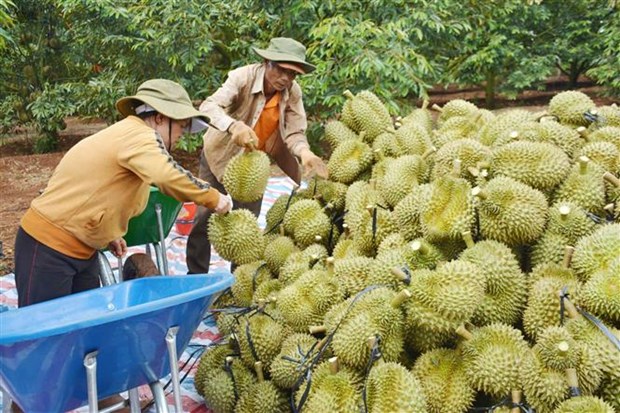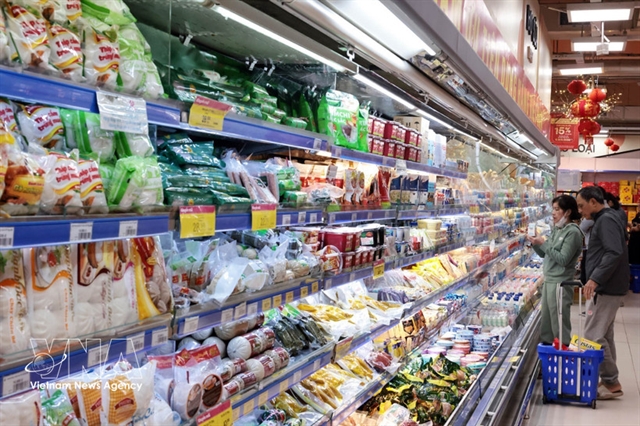 Economy
Economy

 |
| Harvesting durians in the Central Highlands province of Đăk Lắk. — VNA/VNS Photo |
HÀ NỘI — The Việt Nam Vegetable and Fruit Association (VINAFRUIT) estimated that Việt Nam’s fruit and vegetable exports will top US$5.5-5.6 billion, which is a new record, in 2023.
In November, exports reached nearly $375.48 million, marking a reduction of 38.4 per cent compared to the previous month but an increase of 22.5 per cent compared to the same period last year.
In the first 11 months of this year, Việt Nam posted $5.2 billion in fruit and vegetable exports, surging 70 per cent year-on-year.
China remains the biggest importer of Việt Nam's fruits and vegetables, buying 66 per cent of the total exported fruits and vegetables of Việt Nam. Other major importers were the US, the Republic of Korea (RoK), and Japan.
Meanwhile, in November, Việt Nam spent nearly $153.7 million to import fruits and vegetables, which marked a month-over-month decrease of 5.6 per cent and a year-over-year decrease of 0.7 per cent.
In the first 11 months of this year, Việt Nam’s imports reached $1.77 billion, dropping 5.8 per cent year on year.
VINAFRUIT General Secretary Đặng Phúc Nguyên said that in the last two months, fruit and vegetable exports tended to decrease because Việt Nam's durian season had ended. The association forecasts that durian export value in 2023 can reach $2.3 billion.
Meanwhile, dragon fruit exports are expected to grow well from now until the Lunar New Year celebration when demand for the fruit in the Chinese market will increase. Moreover, as China's domestic dragon fruit production will also decrease due to reduced output in winter, China's demand for imported dragon fruit will increase.
However, after a period of suffering losses, dragon fruit farmers had switched to growing other crops, resulting in reduced output this year, Nguyên said.
Deputy Minister of Agriculture and Rural Development Phùng Đức Tiến said that Việt Nam and China will soon sign protocols on exports of coconut products, frozen fruit, and watermelons, which are expected to help further boost the export of agricultural products this year.
Tiến asked businesses, localities, and industry associations to pay special attention to issues of the quality of growing areas, traceability, planting area codes, and packaging facilities to ensure that Việt Nam strictly complies with signed protocols. — VNS




